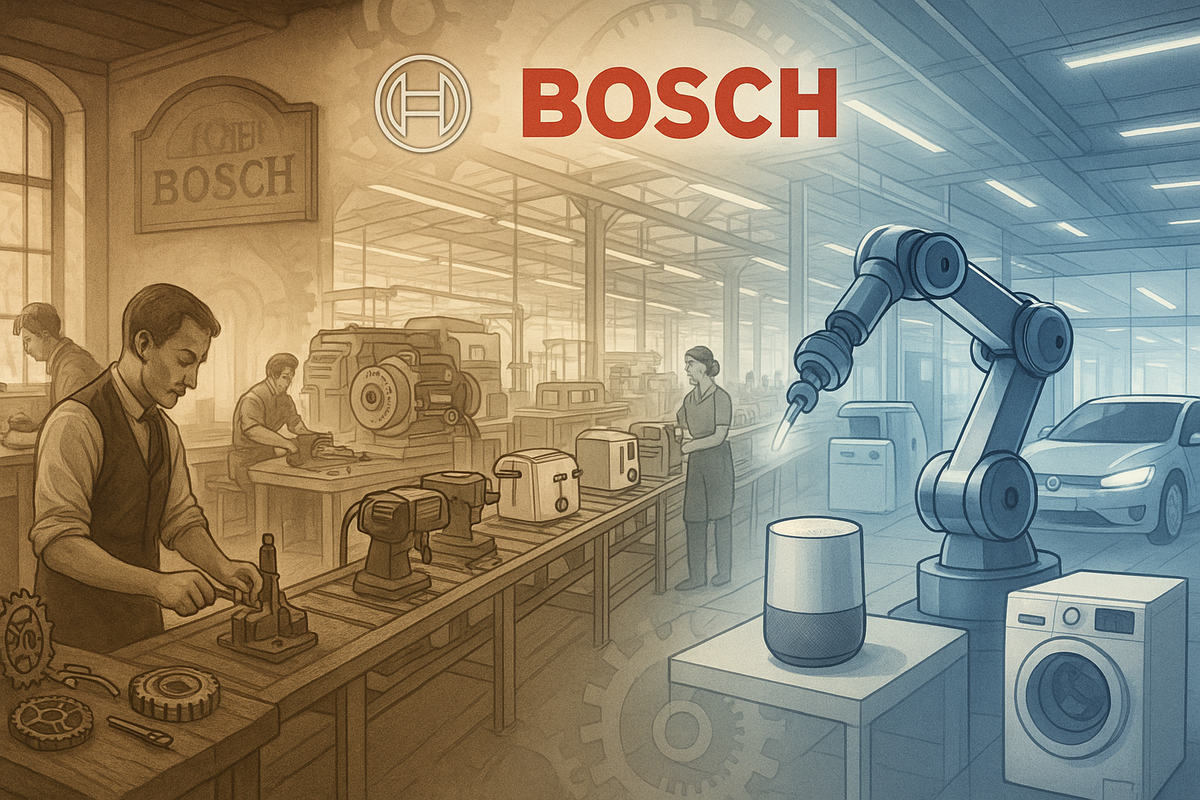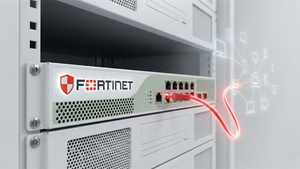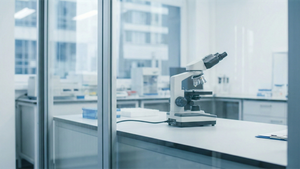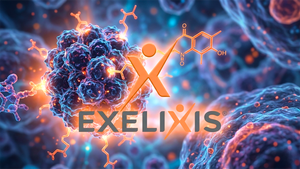
Robert Bosch GmbH (ETR: BOSCH), commonly known as Bosch, stands as a global titan in technology and services, a testament to over a century of relentless innovation, precision engineering, and a profound commitment to improving lives. From its humble beginnings as a small workshop in Stuttgart, Germany, Bosch has evolved into a multinational powerhouse, shaping industries from automotive and industrial technology to consumer goods and building solutions. Its journey is a compelling narrative of entrepreneurial spirit, technological breakthroughs, and a steadfast dedication to quality and social responsibility.
Foundation and Early Years
The story of Bosch begins on November 15, 1886, when Robert Bosch, a visionary engineer, established his "Workshop For Precision Mechanics And Electrical Engineering" (Werkstätte für Feinmechanik und Elektrotechnik) in Stuttgart. With just one journeyman and an errand boy, Bosch's initial business model was broad, focusing on providing diverse precision mechanical and electrical engineering services, essentially fulfilling local demands for electrical installations and repairs.
A pivotal moment arrived in 1887 when Bosch improved an existing design for a magneto ignition device for stationary engines. This enhanced product, which allowed gas engines to start instantly, quickly gained popularity and became the company's first successful proprietary development. By 1897, Bosch began installing these magneto ignition devices into automobiles, marking its crucial entry into the burgeoning automotive industry. The company's reputation as a leading automotive supplier was further solidified in 1902 when its chief engineer, Gottlob Honold, unveiled the high-voltage magneto ignition system with a spark plug—a groundbreaking invention whose original operating principle remains fundamentally unchanged today.
Bosch's early years were not without significant challenges. In 1892, the company faced an existential crisis due to payment difficulties from a major customer and a severe lack of financial reserves, causing the workforce to plummet from 24 to just two. Robert Bosch's remarkable perseverance, including borrowing money from his mother and securing a loan with his family as guarantors, kept the business afloat. Another hurdle was the slow development of the market for electrical services, as the necessary infrastructure, such as municipal power stations, was lacking. The breakthrough success of the magneto ignition system provided a crucial pivot, allowing Bosch to thrive in the rapidly expanding automotive sector, which was not dependent on the municipal power grid. Robert Bosch instilled a strong principle of uncompromising quality and technical perfection from the outset, believing that "honest workmanship is more important than temporary gain." This commitment to improving existing designs and consistently delivering reliable products was a continuous solution to ensure customer satisfaction and build a strong brand reputation. As demand for the magneto ignition system grew, Bosch experienced rapid expansion, with its workforce increasing from 45 employees in 1901 to over 1,000 by 1908. To meet this demand, Bosch opened its first factory in Stuttgart in 1901 and, in 1913, established an apprentice workshop to recruit and train qualified young individuals. Recognizing global opportunities, Bosch began its international development in 1898, opening its first branch outside Germany in London, followed by Paris, Vienna, and Budapest. To overcome challenges like customs duties and long transport routes, Bosch started manufacturing abroad, with its first international production plant opening in Paris in 1905.
Growth and Development
Bosch's journey of growth and development is characterized by a relentless pursuit of innovation, strategic market expansion, and continuous product evolution across diverse sectors.
Key milestones in its growth include:
- 1887: Magneto Ignition Device - Robert Bosch manufactured and patented the magneto ignition device, a groundbreaking component for igniting fuel-air mixtures in engines.
- 1902: High-Voltage Magneto Ignition (Spark Plug) - This invention further cemented Bosch's reputation as a pioneer in the automotive sector.
- 1913: Complete Automotive Lighting System - Bosch unveiled the first complete automotive lighting system, comprising headlights, a generator, an alternator regulator, and a battery, paving the way for Bosch to become a universal automotive supplier.
- 1927: Diesel Injection Pump - Bosch revolutionized the industry with the world's first large-scale production of diesel injection pumps and injectors.
- 1928: First Power Tool (Forfex Hair Trimmer) - This marked Bosch's diversification beyond automotive.
- 1932: Electric Hammer Drill - Bosch launched the first iteration of its power drill.
- 1933: First Refrigerator - Bosch officially entered the household appliance market.
- 1978: Anti-lock Braking System (ABS) - After nine years of development, Bosch began production of ABS, a crucial automotive safety innovation.
- 1995: Electronic Stability Program (ESP) - Bosch introduced ESP, a system credited with saving numerous lives.
- Modern Era: IoT and AI - In the 21st century, Bosch has heavily invested in the Internet of Things (IoT) and Artificial Intelligence (AI), developing smart, connected technologies for various applications.
Robert Bosch recognized the importance of global markets early on. By 1914, an impressive 70% to 90% of the company's sales were generated outside Germany. Bosch began setting up manufacturing centers in the United States as early as 1912 and established its first overseas subsidiary in the U.S. by 1930. From 1921, Bosch systematically built an extensive after-sales service organization, known as Bosch Car Service stations, which expanded rapidly to 2,750 workshops in 70 countries within a decade. Following World War I, Bosch faced significant challenges, including the expropriation of patents and international subsidiaries. Despite this, the company's commitment to internationalization remained steadfast, often exhibiting products at international trade fairs to re-establish its reputation. In the 1950s, Bosch declared the international division of labor as a long-term goal, focusing investments on establishing manufacturing sites outside Germany to ensure customer proximity. Diversification into household appliances and power tools also helped Bosch gain a foothold in new markets. Research and development, once concentrated in Germany, transformed into a global network, allowing local engineers to tailor solutions to local needs, a "local for local" approach.
Bosch's product and service evolution reflects a continuous drive for innovation and diversification. Its initial success was rooted in automotive technology, starting with the magneto ignition device (1887) and the spark plug (1902), followed by the complete automotive lighting system (1913), vehicle batteries (1922), windshield wipers (1926), and diesel injection pumps (1927). Recognizing the danger of over-reliance on the automotive sector, Bosch began to diversify in the 1920s-1950s, entering power tools with the Forfex hair trimmer (1928) and household appliances with its first refrigerator in 1933. This expanded to include food processors, washing machines, and dishwashers. Bosch also acquired radio manufacturer Blaupunkt-Werke in 1933, entering the radio and television technology market. In the late 20th century, Bosch continued to innovate in automotive safety and electronic systems, introducing electronically controlled fuel injection systems (Jetronic, 1967; Motronic, 1979), the oxygen sensor (LAMBDA sensor, 1976), and active safety systems like ABS (1978) and ESP (1995). The 21st century has seen Bosch embrace digitalization, the Internet of Things (IoT), and Artificial Intelligence (AI) as core areas of innovation, developing smart, connected technologies for homes, industries (Industry 4.0), and buildings.
Major Achievements
Bosch's history is replete with major achievements, marked by groundbreaking industry innovations, consistent recognition through awards, and strong market leadership across its diverse portfolio.
In Automotive Technology, Bosch's contributions are foundational:
- Magneto Ignition System (1887/1897): This pioneering high-tech product made automobiles a realistic means of everyday transportation.
- High-Voltage Magneto Ignition (Spark Plug) (1902): A fundamental invention, Bosch continues to be the leading manufacturer of spark plugs worldwide.
- Automotive Lighting System (1913): The first in-car electrical system, enabling the integration of other electrical components.
- Diesel Injection Pump (1927): Revolutionized the industry with large-scale production for trucks and cars.
- Anti-lock Braking System (ABS) (1978): Became a standard safety feature, made possible by Bosch's electronic technology.
- Electronic Gasoline Injection (Jetronic) (1967) and Motronic (1980s): Integrated fuel injection and ignition, optimizing engine performance.
- Oxygen Sensor (LAMBDA sensor) (1976): Crucial for optimizing engine performance and meeting emissions standards.
In Power Tools, Bosch was the first manufacturer to introduce Lithium-ion Technology (2003) for wireless electric tools, building on its earlier development of the Electric Drill (1932). Bosch also entered the Home Appliances market with its first Electric Refrigerator (1933) and continues to produce energy-efficient and innovative household appliances, recognized for their "Connected Home" technologies. In Industrial Solutions and Other, Bosch has invested billions in manufacturing Microelectromechanical Systems (MEMS) Sensors and developed specialized machinery for Recycling Electric Vehicle Batteries.
Bosch has received numerous accolades, including:
- ENERGY STAR® Partner of the Year Award: Consistently earned from the U.S. Environmental Protection Agency and the U.S. Department of Energy.
- America's Most Trusted® Kitchen Brand and Dishwasher: Recognized by Lifestory Research® for multiple consecutive years.
- Connected Home Company of the Year: Named in the IoT Breakthrough Awards program.
- CES® Innovation Awards Honoree: Recognized for innovations such as AIShield and the Bosch Hemoglobin Monitor.
- HFS Horizons Recognition: Named a "Horizon 2 – Enterprise Innovator" and a "Disruptor in Digital Engineering Service Providers" for its IP-driven innovation and expertise in Industry 4.0, IoT, and AI.
Bosch holds significant market leadership positions:
- World's Leading Brand: Recognized as the world's leading brand in its market.
- Automotive Parts and Systems: One of the largest independent manufacturers globally, with its technologies found in almost every car brand.
- Electrical Tools and Accessories: One of the leading manufacturers.
- Home Appliances: BSH Hausgeräte GmbH, fully owned by Bosch, is one of the world's leading manufacturers.
- Heating Systems: Worcester Heat System, Bosch's UK subsidiary, is the market leader for combined gas and oil products.
- Injection Systems and Spark Plugs: Global market leader in both.
Bosch's commitment to innovation is further demonstrated by its extensive patent portfolio, registering thousands of patents annually. Beyond technological advancements, Robert Bosch was also a pioneer in social progress, instituting the 8-hour workday in 1906 and establishing fair conditions for workers, including old-age and dependents' assistance.
Corporate Culture and Leadership
Bosch's corporate culture and leadership are deeply rooted in the vision and values of its founder, Robert Bosch, emphasizing entrepreneurial independence, social responsibility, and a forward-looking approach to innovation.
Robert Bosch (Founder) was not only a pioneering engineer but also a social reformer. His invention of the low-voltage magneto ignition device revolutionized the automotive industry. Beyond technology, he was an early adopter of the 8-hour workday and established fair working conditions, believing that employee satisfaction contributed to company performance. He was also a notable philanthropist, establishing the Robert Bosch Foundation, which continues his legacy of promoting healthcare, international understanding, and various societal causes.
Hans Walz, Robert Bosch's successor, played a crucial role in rebuilding the company after World War II, ushering in a period of renewed prosperity in the 1950s. He also carried out Robert Bosch's instructions to help save many people of Jewish descent from Nazi persecution during the war.
The current Board of Management, led by Dr. Stefan Hartung (Chairman), continues to steer Bosch's strategic direction across its key sectors, focusing on corporate strategy, technology development, growth, and sustainability.
Bosch's overarching mission is encapsulated in its statement: "Invented for life." This purpose drives the company to create solutions that inspire enthusiasm, enhance quality of life, and contribute to the conservation of natural resources. The company's commitment and strategy are further described by the statement "Be #LikeABosch," reflecting how they pursue this purpose.
Bosch's corporate culture is built upon a set of core values:
- Future and Result Focus: Emphasizing long-term results.
- Responsibility and Sustainability: Acting prudently for society and the environment, with a goal of achieving carbon neutrality in operations.
- Initiative and Determination: Encouraging entrepreneurial responsibility.
- Openness and Trust: Fostering transparent and reliable relationships.
- Fairness and Respect: Upholding professional ethics.
- Reliability, Credibility, Legality: Adhering to high standards of integrity.
- Diversity, Equity, Inclusion: Valuing diversity and promoting equal opportunities.
- Quality: A fundamental commitment to producing high-quality products.
Bosch's organizational philosophy is characterized by its unique ownership structure, which ensures entrepreneurial independence. The not-for-profit Robert Bosch Stiftung GmbH holds approximately 94% of the share capital, allowing the company to plan long-term and make significant upfront investments without external influence. Social responsibility is a deep-rooted tradition, continuing through the Robert Bosch Foundation and prioritizing the safety of people, economic use of resources, and environmental sustainability. Bosch fosters a culture of empowerment and adaptability, built on trust, appreciation, and empathy, encouraging open communication and continuous improvement. Its customer-centric innovation emphasizes creating solutions for a connected life and improving quality of life worldwide.
Current Status
As of December 31, 2024, Bosch employed approximately 417,900 associates worldwide and generated preliminary sales revenue of 90.5 billion euros. While this represented a 1% nominal decline from the previous year, it remained steady when adjusted for exchange-rate effects. The company's EBIT margin from operations stood at 3.5% in 2024, reflecting the impact of rising costs and global market uncertainty.
Bosch operates across four main business sectors: Mobility, Industrial Technology, Consumer Goods, and Energy and Building Technology. The Mobility division remains a cornerstone, recording €55.9 billion in revenue in 2024. North America emerged as a significant growth driver in 2024, with consolidated sales of $17.3 billion USD, marking a nearly 5% year-over-year increase and representing the largest sales increase globally for the Bosch Group. Bosch aims to be among the top three leading companies in all its business fields and to achieve a better regional and economic balance in its operations.
Bosch faced a difficult economic environment in 2024, leading to a global workforce reduction of nearly 3% (11,500 fewer employees), with significant changes in Europe and Asia. In response, Bosch has undertaken strategic portfolio decisions, including acquisitions and divestments. A notable acquisition is the planned purchase of Johnson Controls' HVAC solutions business for residential and light commercial buildings, expected to close in 2025, which will expand Bosch's presence in growth markets such as the U.S. and Asia. Conversely, Bosch divested large parts of its Building Technologies division's product business for security and communications technology to focus on systems integration.
The company made substantial investments in 2024, allocating approximately €13 billion, with a key focus on innovation in electromobility, hydrogen technology, and sustainable solutions. Recent innovations include testing a cryogenic pump for liquid hydrogen, launching 50 new e-mobility projects, developing modular Advanced Driver-Assistance Systems (ADAS) platforms, and introducing the first Matter-capable, energy-efficient built-in XXL fridge-freezer. Bosch is also heavily investing in AI as a growth driver, with its venture capital arm, Bosch Ventures, investing €250 million in startups focused on AI, IoT, semiconductors, and quantum computing. In terms of sustainability, Bosch achieved carbon neutrality in its own manufacturing operations in 2020 and has now set an ambitious target to reduce Scope 3 carbon emissions by 30% by 2030.
Bosch anticipates that difficult economic conditions will persist into 2025, with only moderate global growth expected and a full recovery unlikely before 2026. Despite these challenges, Bosch has set ambitious financial targets, aiming to achieve an EBIT margin of 7% by 2026 and an average annual growth rate of 6-8% until 2030. For 2025, Bosch expects organic sales growth of 1-3%. Strategically, Bosch will continue to enhance cost efficiency, optimize investments, and maintain financial flexibility. The company plans to further expand its regional strategy globally, with a particular focus on strengthening supply chains and pursuing growth opportunities in North America and India. Mobility and home solutions are identified as key areas for future growth. Bosch sees electromobility, hydrogen technology, and software-defined vehicles (SDVs) as major stimuli for future growth, with hydrogen technology alone projected to generate billions in sales by 2030. AI is also considered a significant growth driver, with software and services expected to contribute billions in sales by 2030. The company will continue its high level of investment in innovation and research and development.
Summary
From its modest beginnings in a Stuttgart backyard workshop, Robert Bosch GmbH has blossomed into a global leader, driven by a relentless pursuit of innovation and a deep-seated commitment to its founding principles. The company's journey is a compelling narrative of overcoming early challenges, strategically expanding its global footprint, and consistently delivering groundbreaking technologies that have shaped industries and improved daily life.
Bosch's enduring success is a testament to its unique blend of entrepreneurial spirit, engineering excellence, and a strong sense of social responsibility. Its "Invented for life" ethos continues to guide its strategic direction, focusing on sustainable solutions and connected technologies for the future. As Bosch navigates a complex global economic landscape, its continued investment in cutting-edge research, diversification into high-growth areas like AI and hydrogen technology, and unwavering dedication to quality position it for continued relevance and leadership in the decades to come.






